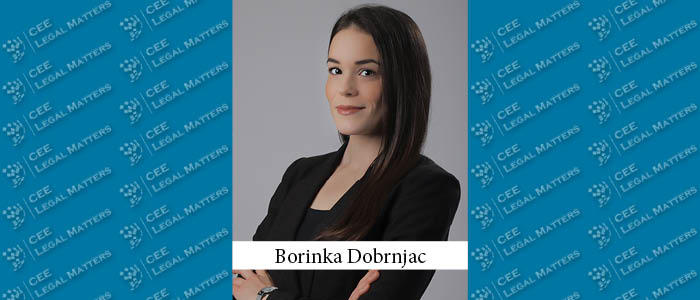On 10 September 2024, amendments to the foreign currency (“FX”) regulation came into force, aimed at easing restrictions on business and, on the other hand, at introducing measures to counteract capital outflows.
Unlocking the Future: The Benefits of a Fully Electronic Land Registry in Hungary
Starting from 1 January 2025, Hungary moves to a fully electronic land registry system following many delays and the potential benefits are transformative. The push for this modernization began in the 2010s, spurred by the success of electronic property registration systems across Europe. Countries like Austria and the Czech Republic have been using electronic land registries since 2001, with Slovakia, Romania, Poland, and most recently Bulgaria following suit in 2021. While these countries maintain paper-based options, the shift toward digital processes has proven advantageous.
Privacy Concerns in Web Scraping: a GDPR and Serbian Privacy Law Perspective
When developing their models, AI providers use various data sets. Sometimes these are provided by their clients, as in the case of tailor-made chatbots, and sometimes the models are trained on licensed or even publicly available data.
Ukraine: New Rules for Registration of Geographical Indications Take Effect
On 16 August 2024, new rules for the registration of geographical indications in Ukraine came into force ("Rules"). In accordance with Order of the Ministry of Economy of Ukraine No. 16370 dated 09.07.2024, the Rules establish requirements for the registration of geographical indications for agricultural goods, food and alcoholic beverages.
Current Challenges Regarding the Exclusion of Shareholders in Limited Liability Companies
The exclusion of shareholders has been seen over the years as a specific procedure aimed at safeguarding companies, in case of a serious breach of the legal and contractual obligations of the shareholders or in case of events with legal effects on some shareholders – resulting in the loss of the “unanimous” consent expressed as affectio societatis (consisting in the shareholders’ intention to cooperate in running the business to achieve and share the benefits).
Countdown to the Full Implementation of the Mandatory Deposit Refund System
Manufacturers have less than a month left - until June 30, 2024 - before they must comply with the rules for products subject to the mandatory Deposit Refund System (DRS) when placing them on the market. Compliance with the new regulations will result in a price increase of HUF 50 per product, which consumers will have to bear - unless they return the relevant beverage cans and bottles.
The Procedure for Reservation of Persons Liable for Military Service During Martial Law Was Amended
The Cabinet of Ministers of Ukraine published Resolution No. 988 dated 16.08.2024, which amended the Procedure for Reservation of Persons Liable for Military Service during Martial Law (hereinafter – the “Reservation Procedure”). Key changes are:
New Decrees on ESG Consultants and Educational Institutions Entered into Force
In the Hungarian Gazette of 8 August 2024, four long-awaited decrees were published, which supplement and detail the provisions of the Hungarian ESG Act.
The Status and Future Prospects of AI Regulation and Development in Montenegro
Montenegro lacks specific legal regulations or national strategies for AI, with current AI activities governed by general legal principles from existing laws. Despite the absence of detailed regulations or strong government support, public awareness of AI is relatively high, with 59.1 % of citizens familiar with the technology. Several initiatives are actively promoting the safe development and use of AI, reflecting a growing public interest in influencing future AI regulations.
The Tax Yearbook for 2023: More Encouragement, More Strictness
As in every year, the Hungarian tax administration has published its yearly summary with the most important trends and numbers regarding taxation in Hungary during 2023. In the last year it seemed that, while the tax authority was still increasing its efforts to entice the taxpayers’ voluntary compliance, fines have also soared to unprecedented heights. The statistics also show that it remains worthwhile to take the case to the courts if one finds the National Tax and Customs Administration’s decisions unlawful.
Tax Penalty Amounts Doubled in Hungary
Default penalty amounts generally has been doubled in Hungary as of 1 August 2024. According to the Governmental Decree published in the Hungarian Gazette on 8 July 2024, overwriting the Act on the Rules of Taxation, the increase is due to the Ukrainian war and is theoretically effective by the end of the emergency period.
Montenegro's New Renewable Energy Regulation: Insights and Key Novelties
The Parliament of Montenegro passed the Law on the Use of Energy from Renewable Sources, which was published in the Official Gazette of Montenegro on August 23rd, 2024. The Law will enter into force on the eighth day from the day of its publication in the Official Gazette of Montenegro.
Hungary and Switzerland Strengthen Economic Ties with Updated Tax Treaty
Hungary's growing economic performance and competitive tax system offer a good business environment for companies from Switzerland, while the presence of Hungarian companies in Switzerland is also growing.
Summary of Latvia’s New National Cyber Security Law
On 1 September 2024, the National Cyber Security Law came into force, replacing the Law on the Security of Information Technologies.
Changes in the Designation of Building Authorities
On 8 August 2024, a new Government decree was published on the designation and operating conditions of the building authorities.
Pay-or-Okay: Guidelines of the European Data Protection Board
As we wrote in our earlier article, according to the decision made by the German data protection authority at the end of last year, the use of the “pay-or-okay” principle is generally allowed. This model involves a cookie notice (via a so-called cookie banner) on a website, giving the user the choice between:
New Regulations on Online Payments in Hungary: What You Need to Know
In July 2024, the Hungarian Government introduced significant changes to the regulations governing online payments, aiming to enhance consumer protection and the security of electronic transactions.
Poland: DORA Compliance Deadline Approaches
The Digital Operational Resilience Act (DORA), along with the NIS2 directive, is a crucial piece of European legislation aimed at strengthening cybersecurity within the EU. While NIS2 focuses on a broader range of critical sectors, DORA specifically targets the financial sector, establishing a robust framework to ensure that regulated financial entities can withstand, respond to and recover from disruptions and threats related to information and communications technology (ICT). DORA complements other EU regulatory frameworks by introducing standardised requirements for digital operational resilience, which financial entities must incorporate into their risk management strategies by its effective date of 17 January 2025.































